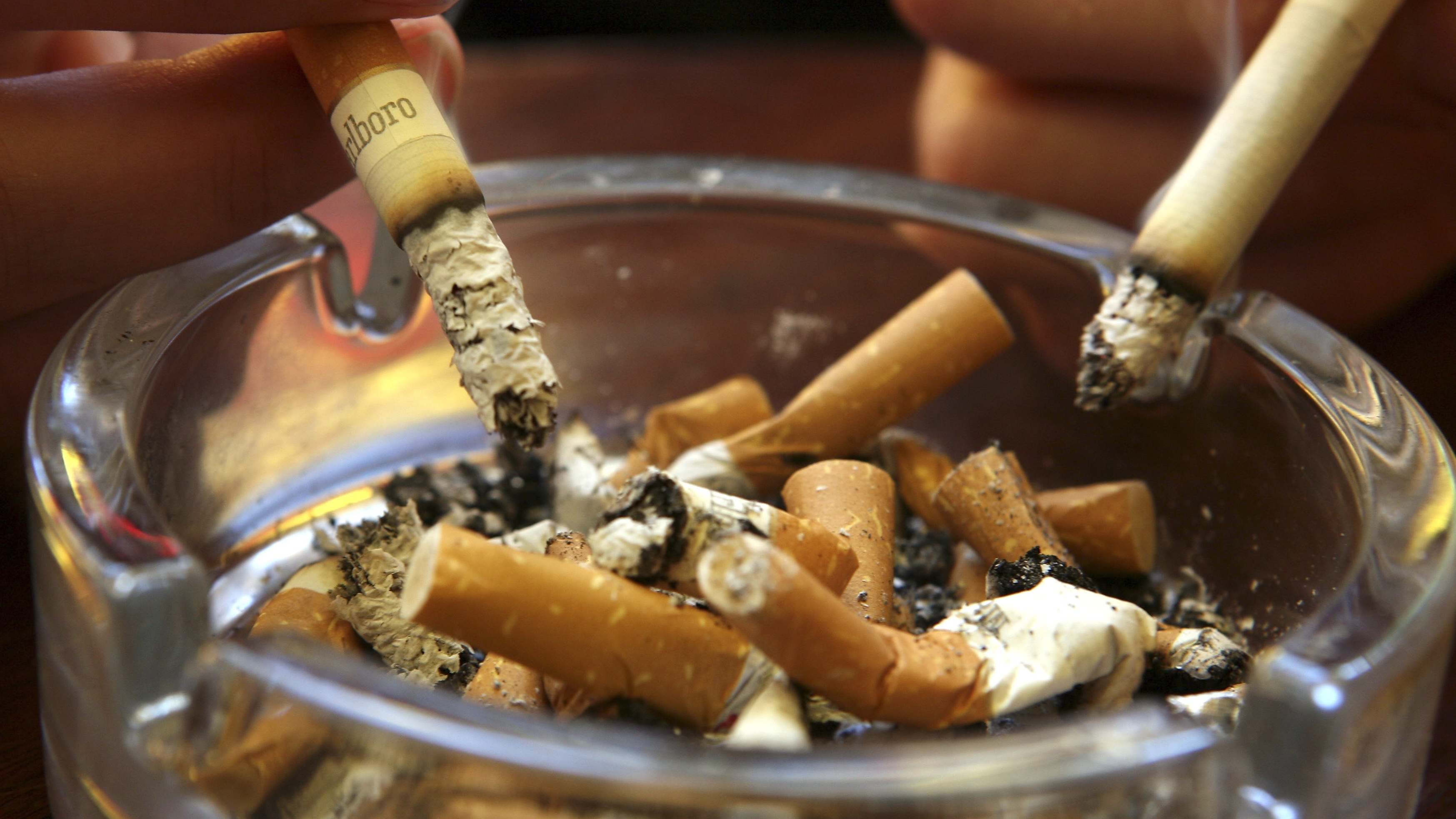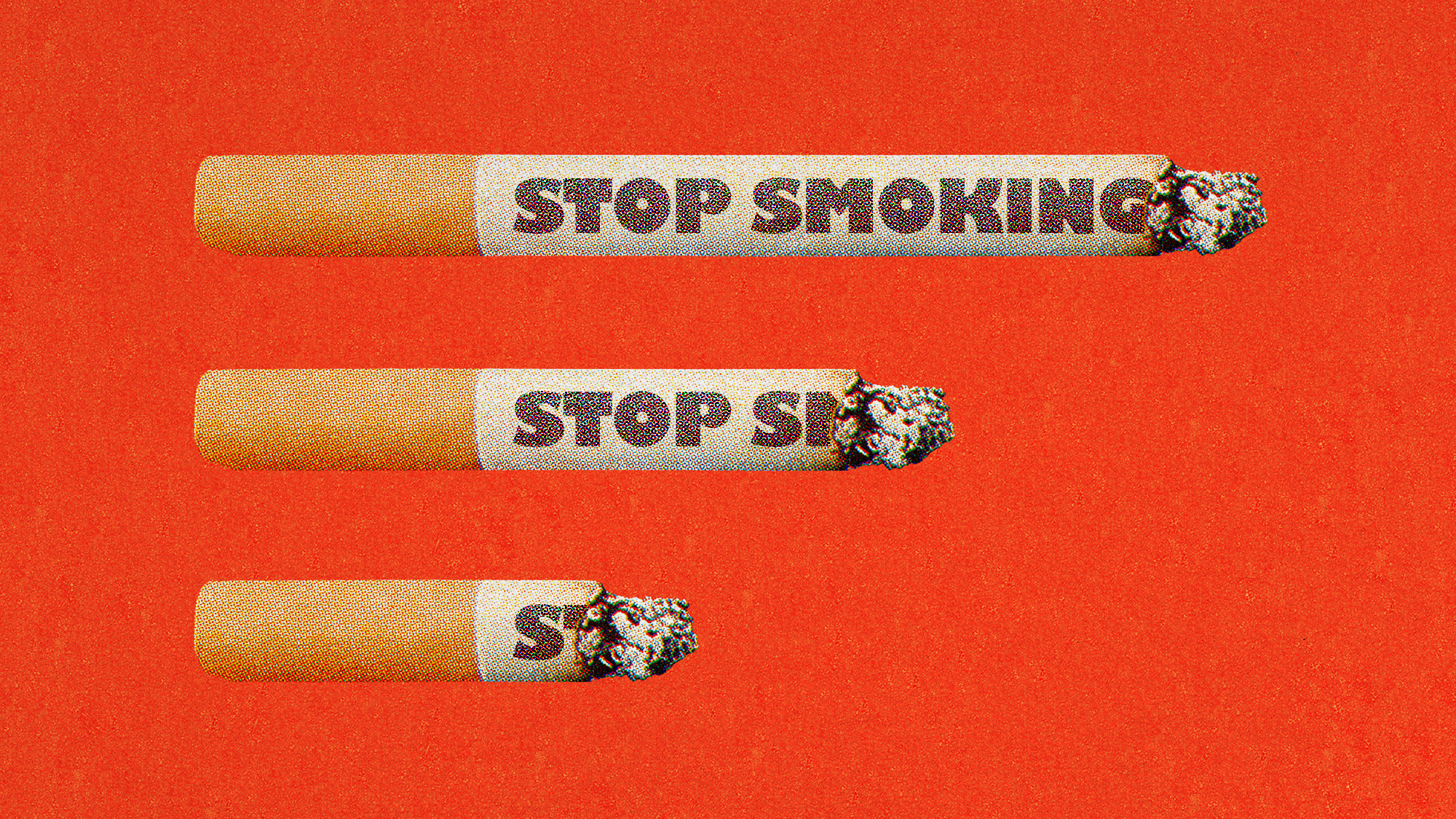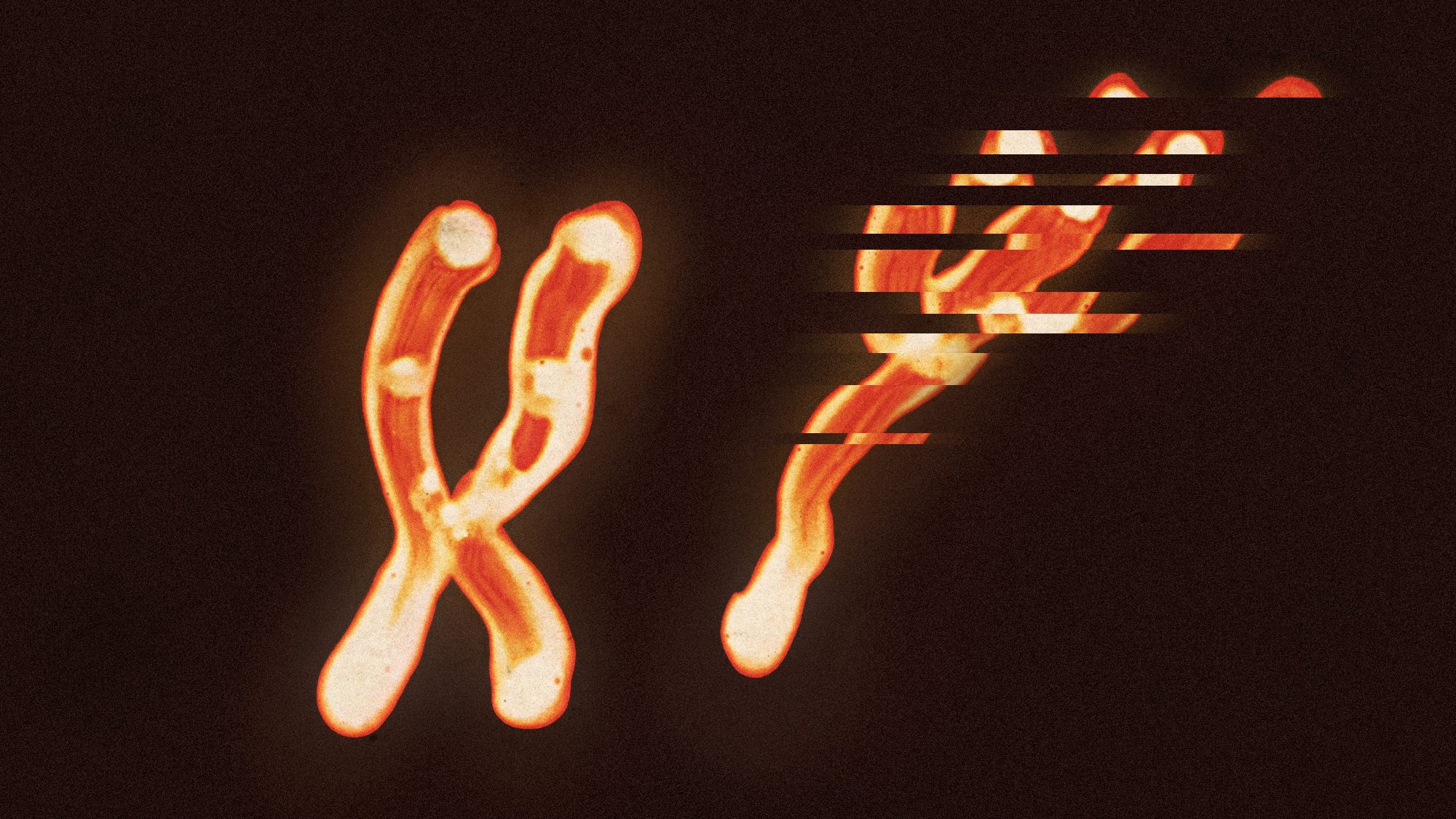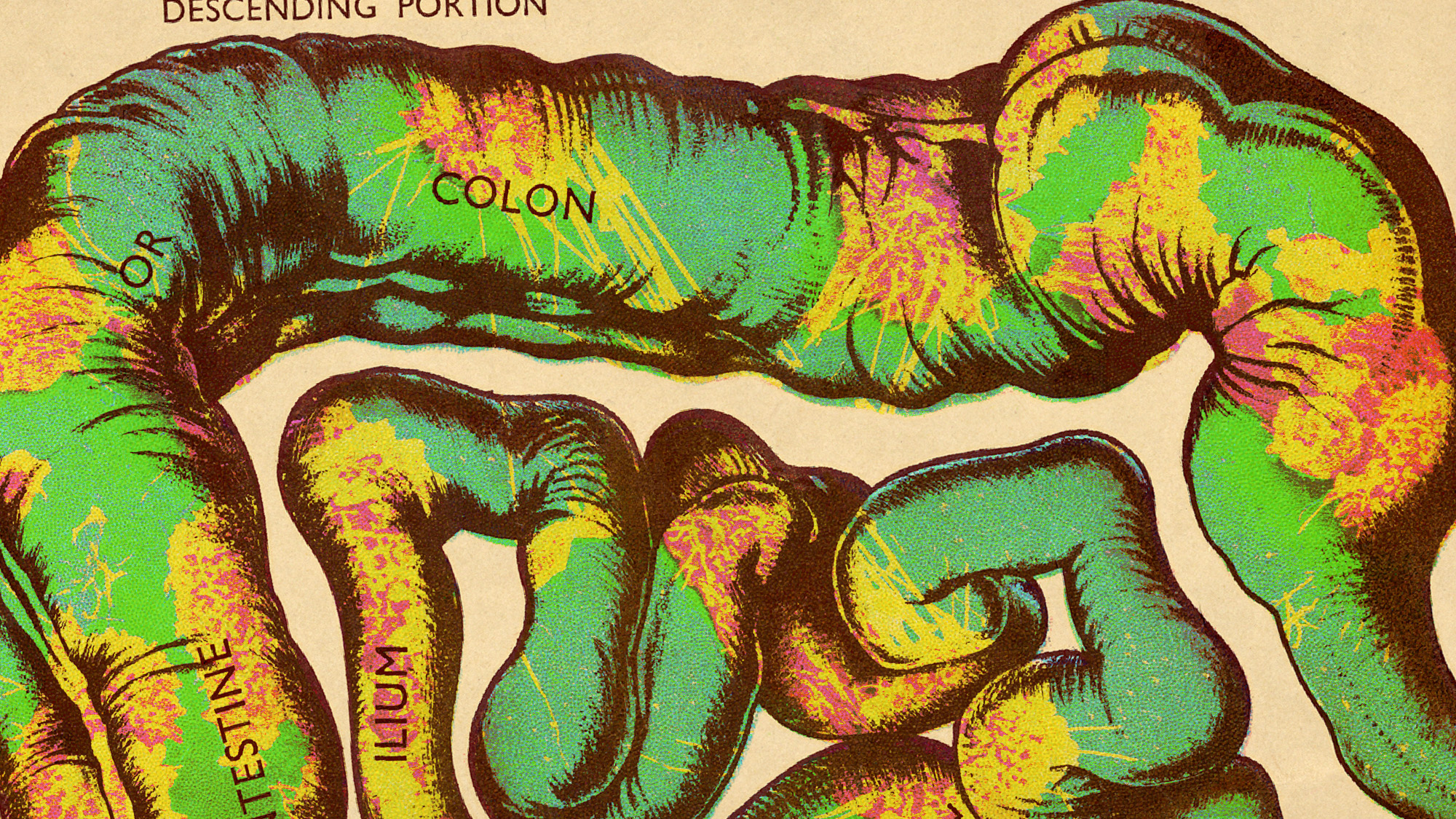How lungs may ‘magically’ recover from smoking damage
New research suggests that healthy cells can replace potentially cancerous ones

A free daily email with the biggest news stories of the day – and the best features from TheWeek.com
You are now subscribed
Your newsletter sign-up was successful
Smokers could turn back the clock on the damage caused by their habit thanks to their lungs’ almost “magical” ability to heal themselves, newly published research suggest.
The study, outlined in a paper in the journal Nature, found that when smokers quit, healthy cells emerge to replace the tobacco-damaged ones.
This process has “been seen even in patients who had smoked a pack a day for 40 years before giving up”, the BBC reports.
The Week
Escape your echo chamber. Get the facts behind the news, plus analysis from multiple perspectives.

Sign up for The Week's Free Newsletters
From our morning news briefing to a weekly Good News Newsletter, get the best of The Week delivered directly to your inbox.
From our morning news briefing to a weekly Good News Newsletter, get the best of The Week delivered directly to your inbox.
Exactly what did the study find?
The UK team behind the research analysed lung biopsies from 16 people, “including a mix of current smokers, ex-smokers, adults who had never smoked and children, looking for the mutations that can lead to cancer”, says The Guardian.
They found that nine in every ten lung cells in the smokers had mutations, including those that can cause cancer. But in the ex-smokers, up to 40% of the cells were healthy ones that were comparable to those of people that had never smoked.
The study’s joint senior author, Peter Campbell of the UK-based Wellcome Sanger Institute, said that the damaged cells had not been able to “magically repair themselves”.
A free daily email with the biggest news stories of the day – and the best features from TheWeek.com
“Rather, they are replaced by healthy cells that have escaped the damage from cigarette smoke,” he explained.
The “precise mechanism by which that replacement occurs is not yet clear”, says The Guardian, but the scientists believe there may be a sort of reservoir of cells upon which the body can draw.
How these cells avoid the genetic devastation caused by smoking is also a mystery as yet, but the team said they appeared to “exist in a nuclear bunker”, adds the BBC.
And the reaction?
The findings have been welcomed by anti-smoking campaigners, as an added incentive for smokers to quit.
Speaking to the BBC, Dr Rachel Orritt, from Cancer Research UK, said: “It’s a really motivating idea that people who stop smoking might reap the benefits twice over - by preventing more tobacco-related damage to lung cells, and by giving their lungs the chance to balance out some of the existing damage with healthier cells.”
Study author Campbell said: “People who have smoked heavily for 30, 40 or more years often say to me that it’s too late to stop smoking – the damage is already done.
“What is so exciting about our study is that it shows that it’s never too late to quit.”
However, some experts have sounded a note of caution about the cell replacement theory. Gerd Pfeifer, professor at the Michigan-based Van Andel Institute’s Center for Epigenetics, told The Guardian that the sample size in the new study was too small to make sweeping conclusions.
But the research “raises many interesting questions worthy of further investigation”, he added.
According to the BBC, around 47,000 cases of lung cancer are recorded each year in the UK alone, almost three-quarters of which are caused by smoking.
-
 James Van Der Beek obituary: fresh-faced Dawson’s Creek star
James Van Der Beek obituary: fresh-faced Dawson’s Creek starIn The Spotlight Van Der Beek fronted one of the most successful teen dramas of the 90s – but his Dawson fame proved a double-edged sword
-
 Is Andrew’s arrest the end for the monarchy?
Is Andrew’s arrest the end for the monarchy?Today's Big Question The King has distanced the Royal Family from his disgraced brother but a ‘fit of revolutionary disgust’ could still wipe them out
-
 Quiz of The Week: 14 – 20 February
Quiz of The Week: 14 – 20 FebruaryQuiz Have you been paying attention to The Week’s news?
-
 The truth about vitamin supplements
The truth about vitamin supplementsThe Explainer UK industry worth £559 million but scientific evidence of health benefits is ‘complicated’
-
 Covid-19 mRNA vaccines could help fight cancer
Covid-19 mRNA vaccines could help fight cancerUnder the radar They boost the immune system
-
 Quit-smoking ads are being put out
Quit-smoking ads are being put outUnder the radar The dissolution of a government-funded campaign could lead to more smokers in the future
-
 Deadly fungus tied to a pharaoh's tomb may help fight cancer
Deadly fungus tied to a pharaoh's tomb may help fight cancerUnder the radar A once fearsome curse could be a blessing
-
 'Poo pills' and the war on superbugs
'Poo pills' and the war on superbugsThe Explainer Antimicrobial resistance is causing millions of deaths. Could a faeces-filled pill change all that?
-
 China's soaring dementia rates
China's soaring dementia ratesUnder The Radar Government launches action plan after cases in China increase 50% faster than global average
-
 The Y chromosome degrades over time. And men's health is paying for it
The Y chromosome degrades over time. And men's health is paying for itUnder the radar The chromosome loss is linked to cancer and Alzheimer's
-
 A bacterial toxin could be contributing to the colorectal cancer rise in young people
A bacterial toxin could be contributing to the colorectal cancer rise in young peopleUnder the radar Most exposure occurs in childhood